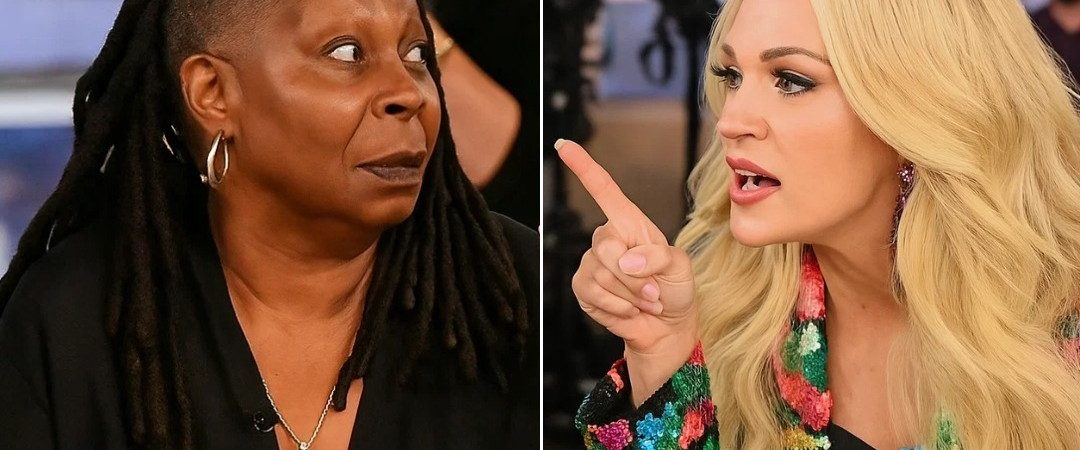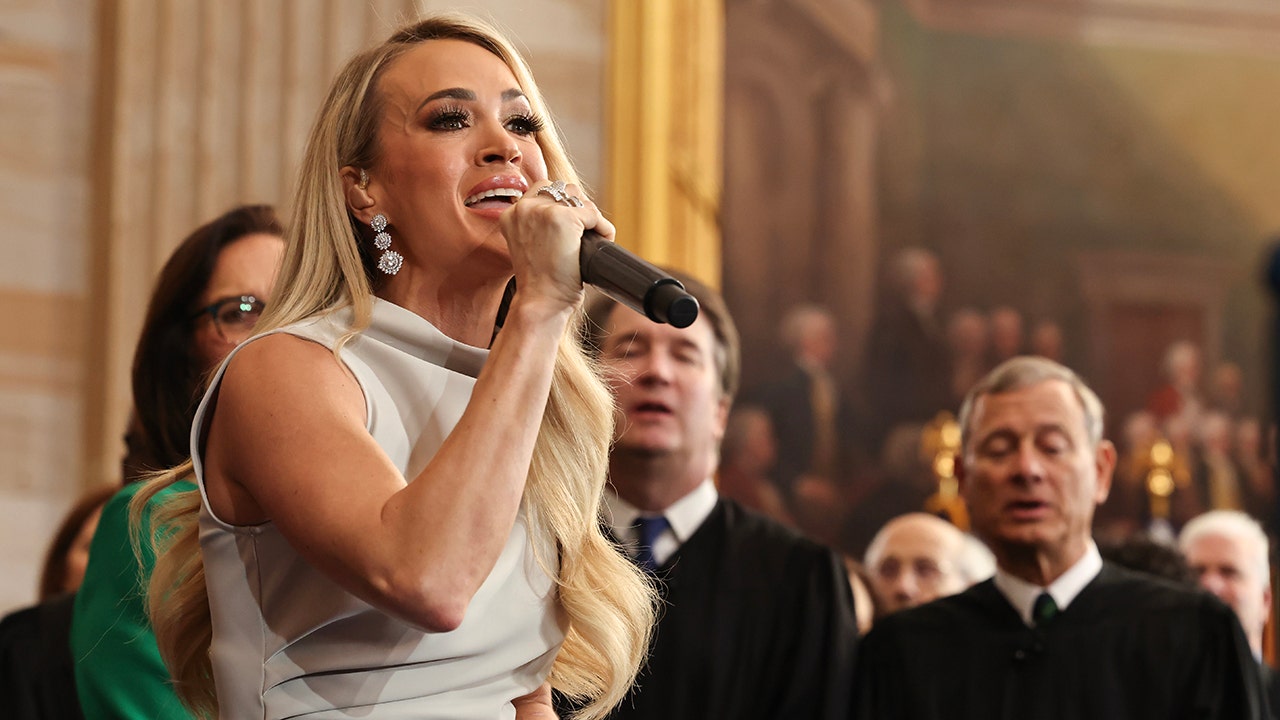Carrie Underwood Sues ABC and The View for $50 Million Over Whoopi Goldberg’s On-Air “Defamation”—A Legal Battle That Could Redefine Free Speech on Live TV
What began as another spirited roundtable on daytime TV has become a landmark test of American free speech laws—because Carrie Underwood, country music’s glittering superstar, isn’t backing down. With a single lawsuit, she’s put the entire industry on notice: when personal attacks cross a line, not even the biggest names in television are immune from consequence.
A Bombshell Moment on The View
The fuse was lit during an episode of ABC’s “The View,” the long-running talk show that has never shied away from controversy. During what should have been a routine chat about celebrity marriages and authenticity in the public eye, Whoopi Goldberg, the grande dame of the panel, launched eight words across the studio that stunned millions watching at home: “When are you going to stop feeding the public a lie?”
The remark, aimed at Underwood, landed with a cold thud. What may have been intended as a witty jab came off as a scorching accusation—not about Carrie’s music, but her very character. Studio chatter turned to uncomfortable silence. Producers sensed they’d crossed from sassy debate into dangerous territory.
Calculated Silence… and Roaring Suppỏt

To the surprise of many, Underwood didn’t immediately return fire on social media. She didn’t release an emotional statement or cancel interviews. She waited—a calculated silence that allowed fans to rally. Within hours, #StandWithCarrie dominated Twitter and Instagram. Her loyal base, tired of the cycle of celebrity humiliation for ratings, was ready for a fight. Tweets and posts poured in, demanding ABC and The View apologize for the “malicious” on-air swipe.
A $50 Million Legal Thunderbolt
When Carrie did strike back, she did so with the force and precision of a chart-topping anthem. Her lawyers dropped a bombshell lawsuit in federal court, seeking $50 million in damages from ABC and The View for “intentional, malicious defamation.” The legal filing called Goldberg’s words not opinion, but “a calculated attempt to destroy the reputation of a beloved public figure for cheap shock value and television ratings.”
Underwood went public with the reasoning behind her suit: “This isn’t just for me. It’s for every artist, creator, and public figure who’s ever been humiliated for the sake of controversy. Our work deserves respect, not ridicule.” In standing her ground, she gave voice to a growing anger among celebrities—and everyday people—against so-called “broadcast brutality.”

Hollywood on Trial
ABC scrambled into classic crisis mode, issuing regret but stopping short of a full retraction. Producers and legal teams dove into transcripts, wondering just how much could be considered “opinion” before it became a legal liability. Meanwhile, Hollywood insiders braced for impact. Was this the lawsuit that would finally redraw the boundaries of free speech and defamation in broadcasting?
Legal scholars immediately weighed in. Was Carrie’s case an infringement on media freedoms or a defense of basic decency? “Public figures are fair game for critique,” noted one attorney interviewed on CNN, “but there’s a line—and it’s increasingly difficult to see where that line is in the social media age.”
A Reckoning for Media Ethics
Media watchdogs and pop culture analysts said the lawsuit couldn’t have come sooner. With personal jabs, character takedowns, and viral “hot takes” blurring every barrier between critique and cruelty, Underwood’s lawsuit went from a personal vendetta to a public referendum on media ethics.
For other stars, the message was clear: you don’t have to accept every headline or soundbite as the price of fame. Celebrities, long told to “toughen up” or “play along,” were now watching to see if the courts would defend their right to dignity—even when the cameras were rolling.

The War on Broadcast Brutality
Whether Underwood wins her case or not, her bombshell lawsuit sets a new precedent: Not all commentary is protected, and not every “opinion” is harmless. Live TV has come face-to-face with a new era of accountability—and for broadcasters, the game has changed for good.
As fans, lawyers, and media personalities debate what comes next, one thing is certain: Carrie Underwood’s bold stand has redefined what’s at stake in the war between free speech and public respect in America’s living rooms. The question hanging in the air? Will broadcasters change their tune—or will the next “hot take” end up in a courtroom, too?